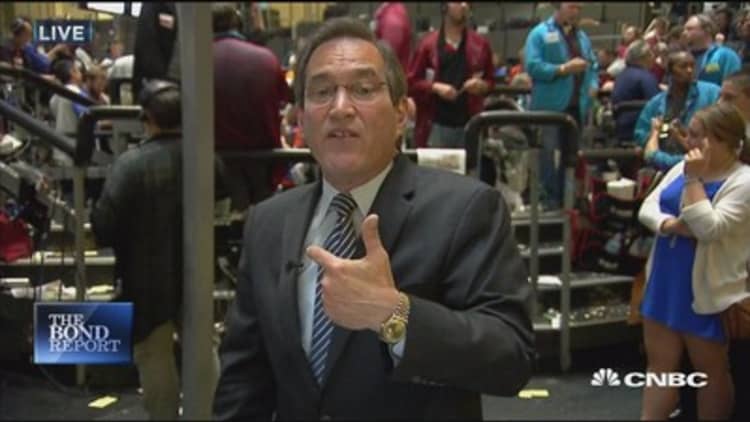The U.K.'s economy had a better start to 2015 than previously thought – and British consumers seem to think it's the boom years of the early noughties again.
According to Tuesday's revised figures, the U.K. economy grew by 2.9 percent in the first three months of 2015 from the same time last year – the sort of growth level that economists took for granted pre-credit crisis.

And U.K. consumers seem to be responding, with confidence figures from market research agency GfK showing confidence back at levels not seen for more than a decade.
Read MoreForget Fed, rate-hike talk really heating up here
"We're seeing a dramatic uptick in confidence this month, a real post-election bounce that's put a spring in the step of consumers across the U.K.," Joe Staton, head of market dynamics at GfK, said in a statement on Tuesday.
With low inflation helping to keep the costs of the weekly shop down, real household disposable income rose by 4.5 percent in the first three months of the year, the fastest rate since the second quarter of 2001.
There are also encouraging signs from business investment, up 5.7 percent in the first quarter from the same time in 2014.
Rate hikes sooner?
However, the strong data may not be enough to sway the doves on the Bank of England's rate-setting committee into raising interest rates sooner than the mooted first half of 2016.
Andy Haldane, the bank's chief economist, made a speech to the U.K.'s Open University on Tuesday where he mentioned a "dread risk" of spending in the economy and a still-present "recession risk".
One piece of data that may concern the bank the balance of payments deficit (essentially the difference between money coming in and out of the country), which was still 5.8 percent of gross domestic product (GDP) in the first quarter – a historically high figure that the bank has previously expressed concerns about. Weakness in exports suggests U.K. manufacturers are not getting the benefit of the euro zone recovery, possibly because of the strength of sterling.
"Policymakers will be worried about the poor export performance and also concerned that the economy may be slowing in the summer as sterling's strength continues to hit competitiveness," Chris Williamson, chief economist at Markit, said in a statement.


